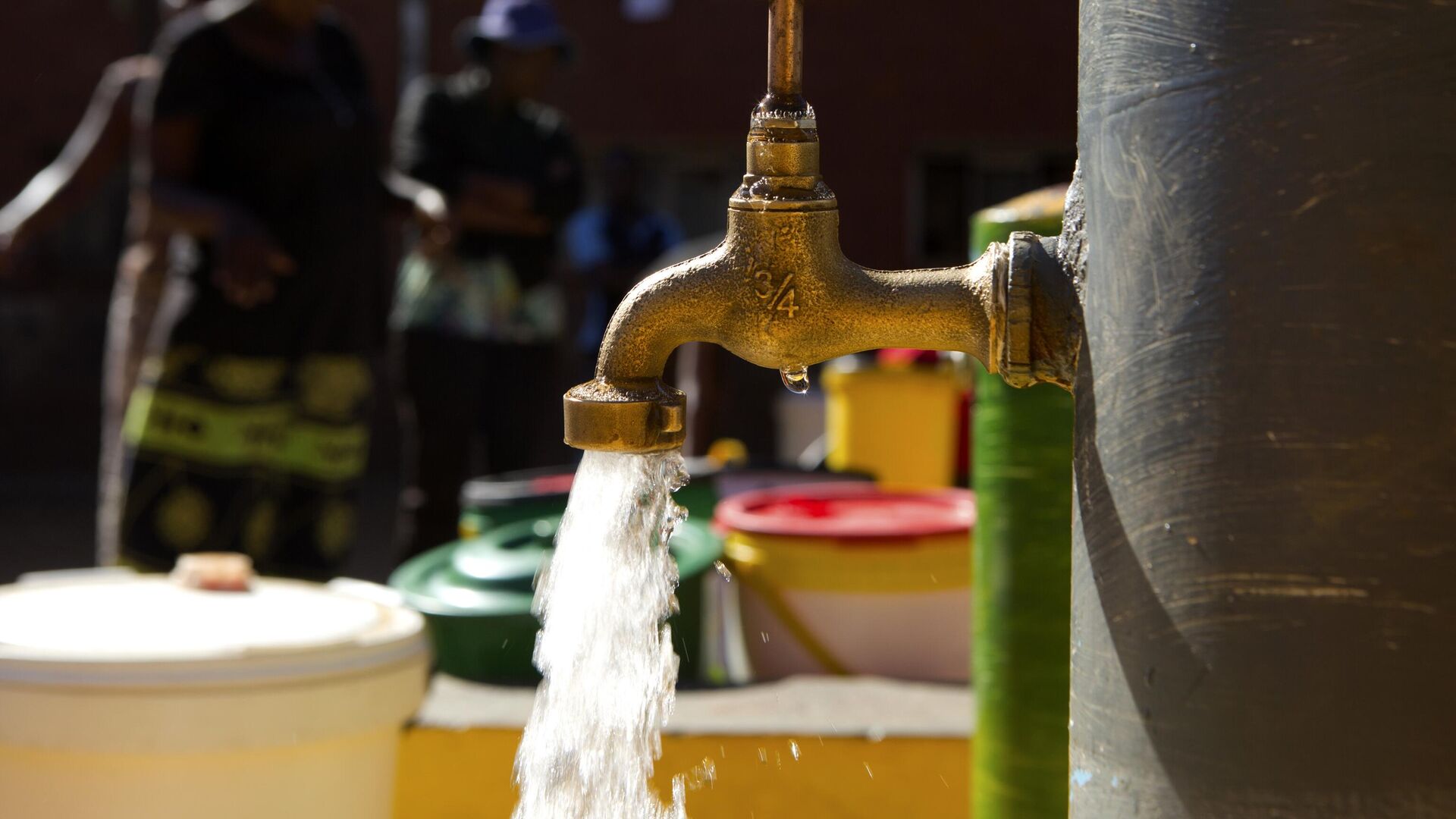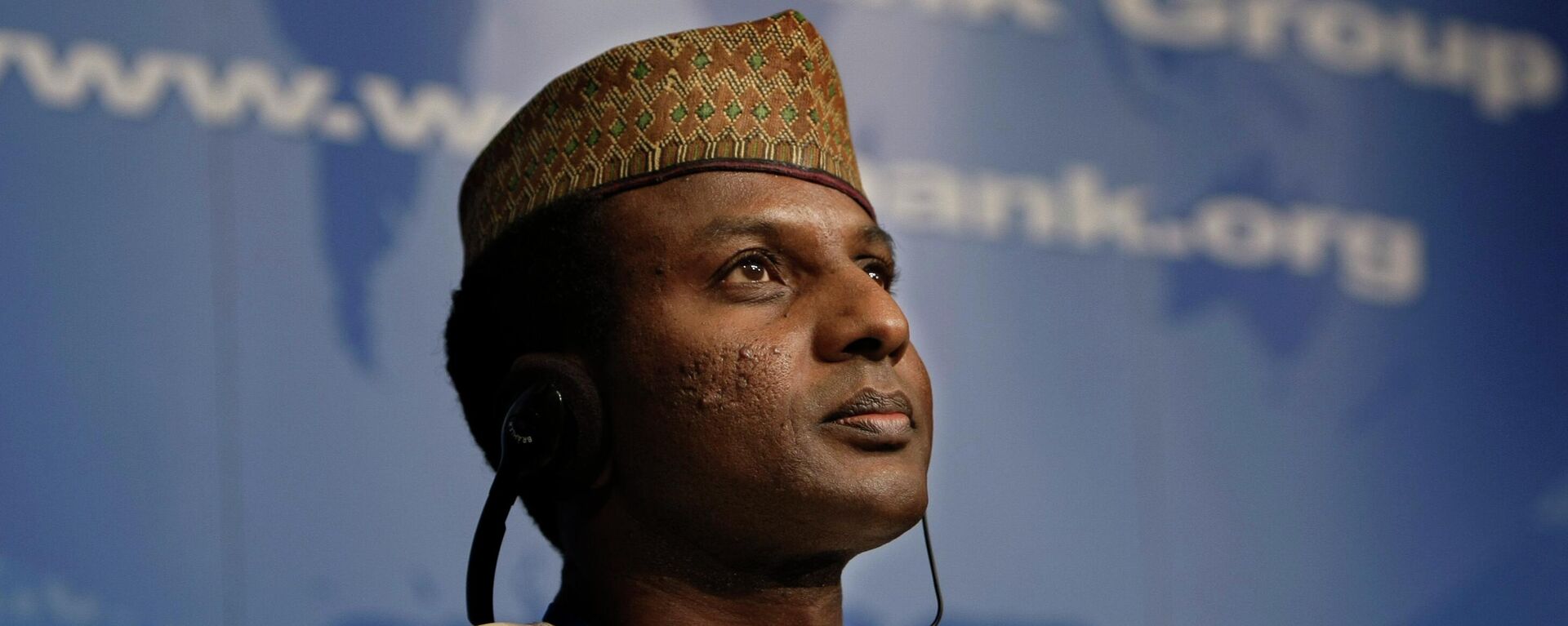https://en.sputniknews.africa/20240106/niger-decides-to-nationalize-its-water-sector-terminates-contract-with-french-company-1064489763.html
Niger Decides to Nationalize Its Water Sector, Terminates Contract With French Company
Niger Decides to Nationalize Its Water Sector, Terminates Contract With French Company
Sputnik Africa
The French Veolia Group, through its subsidiary Société d'Exploitation des Eaux du Niger, has been providing access to drinking water for the majority of the... 06.01.2024, Sputnik Africa
2024-01-06T13:08+0100
2024-01-06T13:08+0100
2024-01-06T13:08+0100
sub-saharan africa
west africa
niger
water security
water resources
water desalination
france
company
reforms
https://cdn1.img.sputniknews.africa/img/07e8/01/06/1064490042_0:290:3072:2018_1920x0_80_0_0_792880cbec2f88f04bb622915ac3cb43.jpg
The Nigerien government has decided to nationalize the operation of its drinking water, ending its contract with the French company Veolia, and its subsidiary Société d'Exploitation des Eaux du Niger (SEEN).This decision follows the adoption by the interim Council of Ministers of a draft decree establishing the legal statutes of a new state-owned company called La Nigérienne des Eaux.Veolia's concession expired on December 31. After more than 22 years of partnership, Nigérienne des Eaux is now taking over from SEEN to ensure the operation, production and distribution of drinking water in the urban and semi-urban areas of the West African country.The purpose of this draft decree is therefore to meet this requirement and to provide Nigérienne des Eaux with the organizational and operational rules it needs to carry out its missions.Access to drinking water and sanitation is still very low in Niger, with large disparities between urban and rural areas and between regions. Only 56% of the population has access to a drinking water source.
https://en.sputniknews.africa/20240103/nigers-pm-reportedly-launches-national-dialogue-consultations-1064438053.html
west africa
niger
france
Sputnik Africa
feedback@sputniknews.com
+74956456601
MIA „Rossiya Segodnya“
2024
Muhammad Nooh Osman
https://cdn1.img.sputniknews.africa/img/07e7/04/0a/1058467512_0:0:1280:1280_100x100_80_0_0_ec723833bcbfcaed2e21952965ad99e4.jpg
Muhammad Nooh Osman
https://cdn1.img.sputniknews.africa/img/07e7/04/0a/1058467512_0:0:1280:1280_100x100_80_0_0_ec723833bcbfcaed2e21952965ad99e4.jpg
News
en_EN
Sputnik Africa
feedback@sputniknews.com
+74956456601
MIA „Rossiya Segodnya“
Sputnik Africa
feedback@sputniknews.com
+74956456601
MIA „Rossiya Segodnya“
Muhammad Nooh Osman
https://cdn1.img.sputniknews.africa/img/07e7/04/0a/1058467512_0:0:1280:1280_100x100_80_0_0_ec723833bcbfcaed2e21952965ad99e4.jpg
west africa, niger, water security, water resources, water desalination, france, company, reforms
west africa, niger, water security, water resources, water desalination, france, company, reforms
Niger Decides to Nationalize Its Water Sector, Terminates Contract With French Company
Muhammad Nooh Osman
Writer/Editor
The French Veolia Group, through its subsidiary Société d'Exploitation des Eaux du Niger, has been providing access to drinking water for the majority of the population of this West African country for more than 22 years.
The Nigerien government has decided to nationalize the operation of its drinking water, ending its contract with the
French company Veolia, and its subsidiary Société d'Exploitation des Eaux du Niger (SEEN).
This decision follows the adoption by the interim Council of Ministers of a draft decree establishing the legal statutes of a new state-owned company called La Nigérienne des Eaux.
Veolia's concession expired on December 31. After more than 22 years of partnership, Nigérienne des Eaux is now taking over from SEEN to ensure the operation, production and distribution of drinking water in the urban and semi-urban areas of the
West African country.
The purpose of this draft decree is therefore to meet this requirement and to provide Nigérienne des Eaux with the organizational and operational rules it needs to carry out its missions.
Access to drinking water and sanitation is still very low in Niger, with large disparities between urban and rural areas and between regions. Only 56% of the population has access to a drinking water source.



